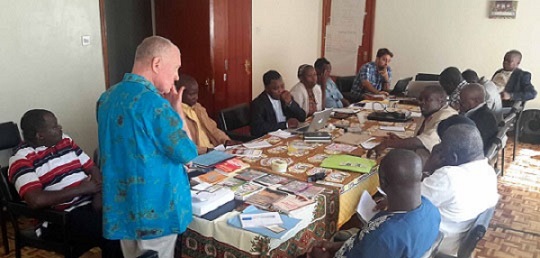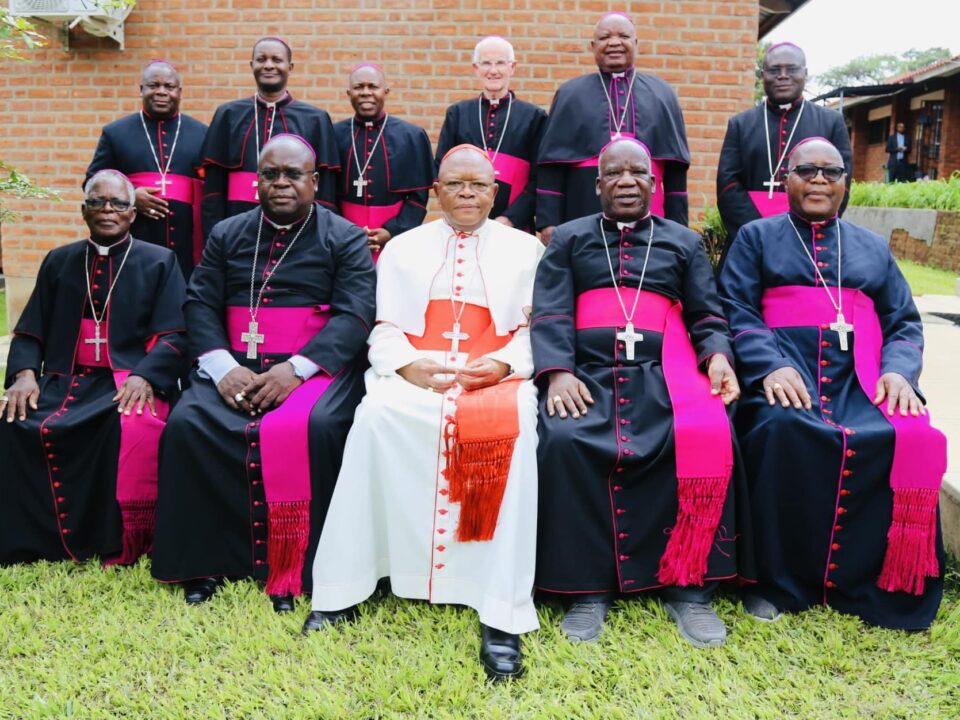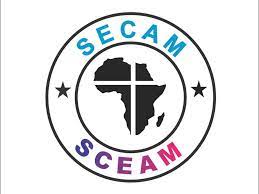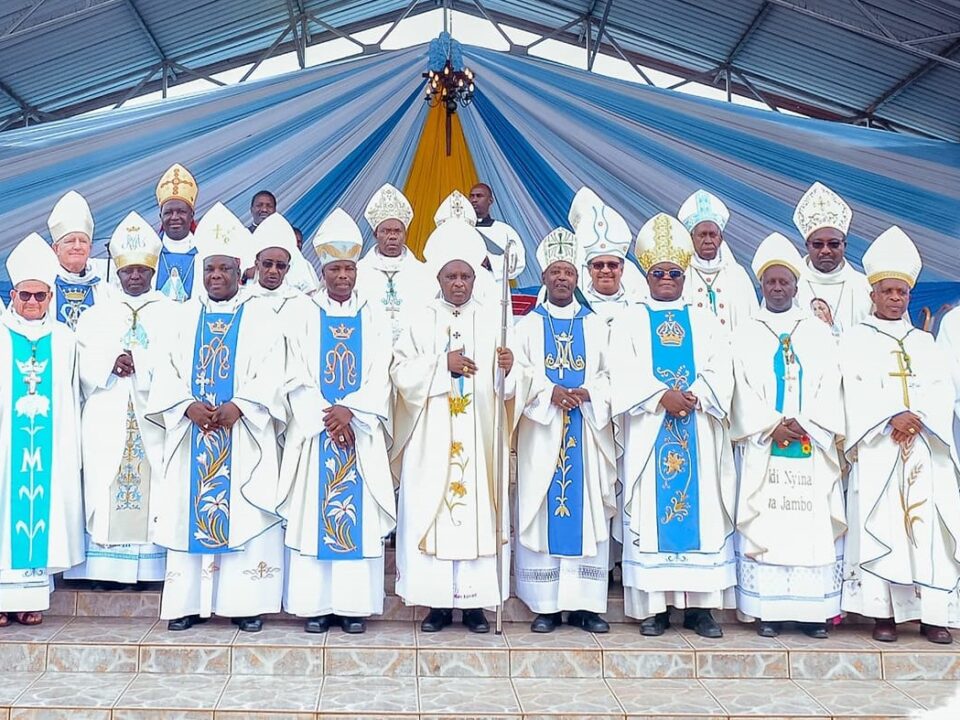- Contact us on - Contactez-nous sur - Contacte-nos em
- +233-30-277-8867/8
- +233-30-277-2548
- secam@secam.org
Essay on Development and Challenges of Small Christian Communities in Africa to be Part of a Resource Book for Use Globally
Essay on Development and Challenges of Small Christian Communities in Africa to be Part of a Resource Book for Use Globally
CANAA || By Father Don Bosco Onyalla, Nairobi || 12 March 2018
 An essay focusing on the histories, themes, development, and challenges of a model of being Church in Africa that takes the form of Small Christian Communities (SCCs) is to be part of a resource book, which could be used in institutions of higher learning across the globe.
An essay focusing on the histories, themes, development, and challenges of a model of being Church in Africa that takes the form of Small Christian Communities (SCCs) is to be part of a resource book, which could be used in institutions of higher learning across the globe.
The author of the essay, Nairobi-based Father Joseph Graham Healey of the Maryknoll Society, is a specialist in SCCs.
“The essay summarizes much of the SCC material that we have discussed and used in the past few years. I refer to 25 countries in Africa,” Father Healey told CANAA in an email and added, “The Bibliography includes 10 women including eight African women (five religious sisters and three lay women) and two expatriate women.”
In a voicemail interview with CANAA Monday, March 12, Father Healey shared about the motivations of writing the essay, its uniqueness and significance, and how the essay might be accessed and used worldwide.
Father Healey’s essay on SCCs is expected to be one of the 40 essays in the “Handbook of African Catholicism” being edited by Father Stan Chu Ilo.
Below is the full text of with 79-year-old Father Healey, who founded the Social Communications Department of the Association of Member Episcopal Conferences in Eastern Africa (AMECEA) in 1968.
CANAA: What has been your main motivation in writing this essay?
Father Healey: There are many conferences going on around the world. Last July (2017), DePaul University in the US, the largest University in the US according to population, held a symposium on African Catholicism. Nigerian theologian, Father Stan Chu Ilo, is coming up with a book, which is to be published in the US this year as the “Handbook of African Catholicism” by Notre Dame Press.
I am, without any offence, the most knowledgeable person on SCCs in East Africa – perhaps the only one left with institutional memory from the 1960s, having been at the meeting in 1973 when Catholic Bishops in Eastern Africa established SCCs as a pastoral priority. It was against this background that (Father) Stan asked me to put in writing the current state of the growth of Small Christian Communities in Africa.
Father Stan specifically asked me to write on four topics on Small Christian Communities in Africa, which are in the title: the history of SCCs in Africa; themes (I was able identify seven); developments of SCCs; and then challenges.
CANAA: Having published considerable content on SCCs in Africa, what is unique in this essay, that might not have been captured in your previous writings?
Father Healey: This is a significant question. Under the category of challenges in my essay, the last section deals with challenges to African theologians, in which we express the need for an African theologian of the new generation to write about the SCC model of Church in Africa. This is a new suggestion, being presented for the first time.
This is the first time such a challenge is being proposed because the African theologians writing about SCCs received their training oversees. The new generation of African theologians being challenged to write are those being trained now, many of them in Africa. That is why we need an African theologian of the new generation.
The second novelty in this essay is the presentation of new realities and new responses to life challenges through the help of SCCs. For instance, it has been very hard to get facts about SCCs in West Africa. Yet now, the Ghanaian Bishops’ conference has made SCCs a pastoral priority in the Church in Ghana. This is a new initiative in an ecclesial territory where the model of church in has been devotional groups, also called pious associations.
The essay also presents new developments in SCCs, mentioning Lagos Archdiocese in Nigeria where leaders have reported about 60 parishes with SCCs. This is new.
In addition, content on SCCs is given in two examples of new developments demonstrating how SCCs are responding to signs of our time. For example, I report about how SCCs can respond to child protection in their neighborhoods in view of addressing physical, emotional, and sexual abuses. We seem to have something new in Africa, namely, SCCs ‘in the neighborhood’, something not in the US; it is a different model of Church. We need SCC to begin getting involved in child protection, because it is in the neighborhood.
Next month (April 2018), AMECEA has been invited to Uganda to a refugee camp (1.4million have crossed to northern Uganda in the last year) – Gulu Archdiocese and Arua diocese. It has been suggested that the best way to network the people in the refugee camp is through SCCs – setting up communities ‘in the neighbourhood’ within the camp.
The way of dealing with child protection and networking refugees in their camps through SCCs are two new ways of responding to problems with the help of SCCs.
CANAA: Who is your target audience in this essay?
Father Healey: Stan wanted the handbook to get into the hands of professors and lecturers as an academic book. So, the first target audience could be the academic community. When uploaded online (on SCC website), the essay will reach a diverse audience, beyond the academic audience. This is because the Internet creates a new market, with multiplication effect of communication – it reaches a wider group of people. The actual print edition will have small sales, because while institutions of higher learning might procure some copies, many individuals cannot afford to purchase the handbook.
CANAA: How do you want this essay to be used?
Father Healey: The essay is going to be part of the 40 articles that will make up the “Handbook of African Catholicism”. The handbook could be used in courses on African culture, African theology, and anything to do with Christianity in Africa. Hence, it will be used in universities around the world and research institutes around the globe as a resource book. In this regard, it could be used as a textbook of a course, or be on the reading list of a course.



